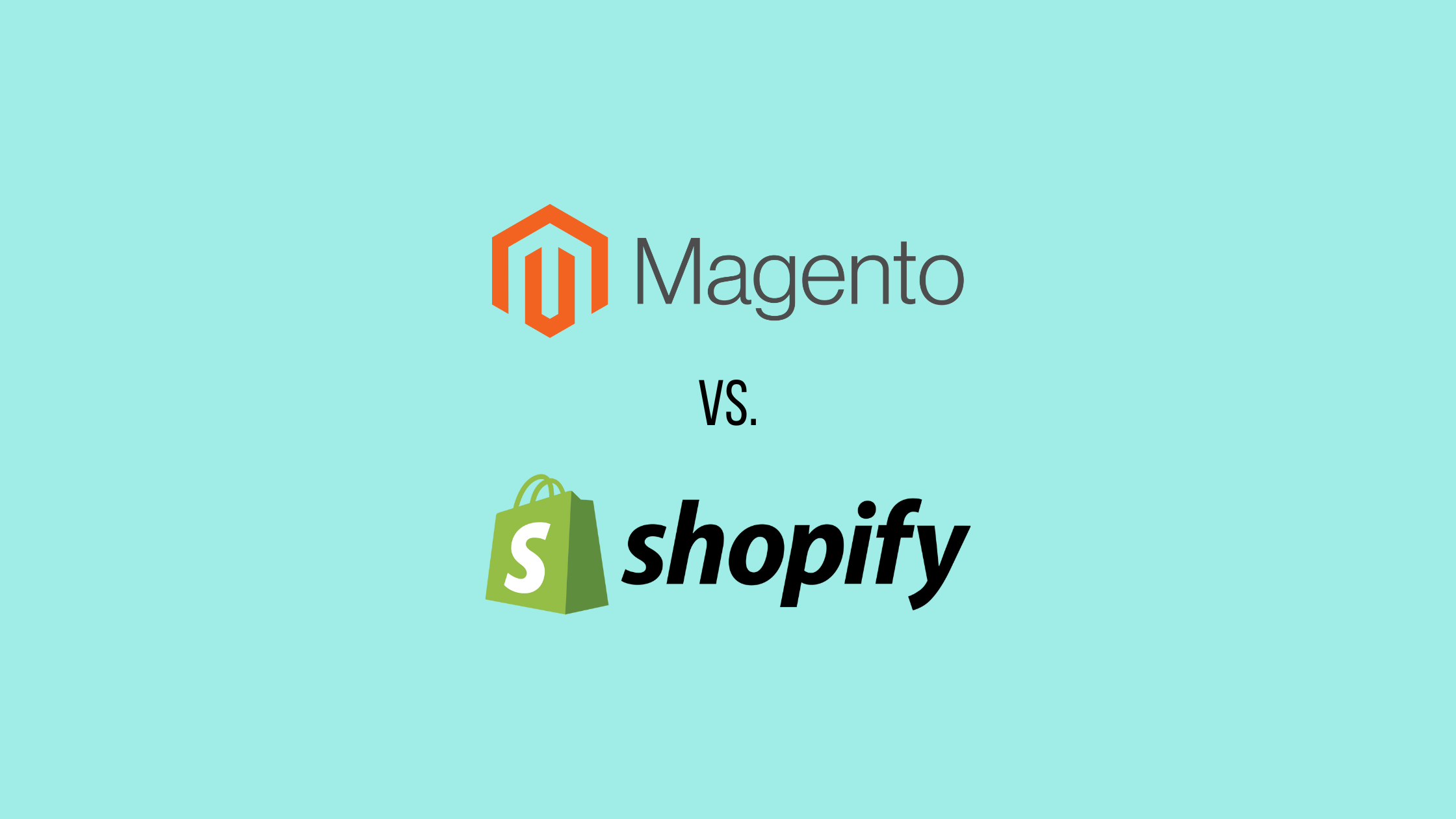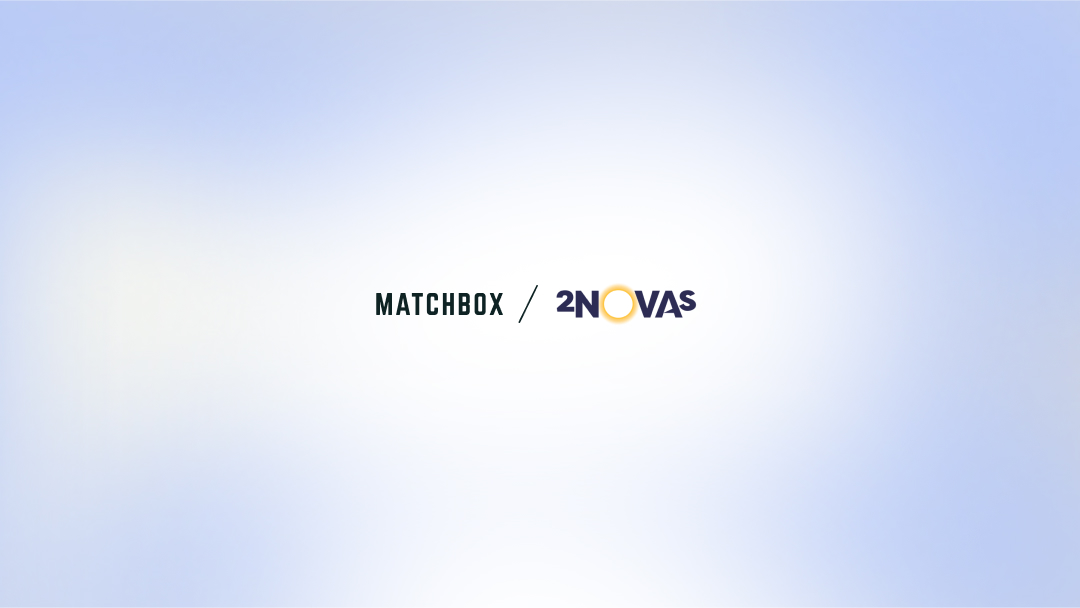Estimated reading time: 13 minutes
Choosing the right e-commerce platform is more than a decision; it’s a strategic move that can shape the trajectory of your online business. In a market teeming with options, Magento and Shopify emerge as key players, each with its strengths and appeal. This article aims to unravel the intricacies of these platforms, providing businesses with a compass to navigate the digital landscape.
The digital storefront is your gateway to the global marketplace. The platform you choose will determine not just your online presence but also the user experience, scalability, and overall success of your venture. This article dives into the significance of this decision, emphasizing that it’s not merely about setting up shop but creating an online space that resonates with your audience.
Magento Vs. Shopify: 2 Popular Choices
In the vast expanse of e-commerce solutions, Magento and Shopify have secured their positions as crowd favorites. These platforms have garnered attention for distinct reasons, catering to different business needs and preferences. As we dissect their offerings, you’ll gain valuable insights into which one aligns best with your unique requirements.
The primary goal here is clarity. We aim to compare and contrast Magento vs. Shopify, not to declare a winner, but to equip you with the knowledge needed to make an informed decision. This article is your guide, helping you navigate through the features, nuances, and considerations that come with each platform. So, let’s embark on this journey of exploration, demystifying the complexities of Magento and Shopify to steer your business toward digital success.
Related Links
Overview of Magento

Image source: Unsplash
Introduction to Magento as an Open-Source E-commerce Platform
Magento stands as a beacon in the realm of e-commerce, beckoning businesses to a world of limitless possibilities. Born as an open-source platform, Magento empowers users with unparalleled control over their online stores. Its open-source nature means the source code is accessible and modifiable, allowing businesses to tailor their digital storefronts to exact specifications.
This flexibility extends beyond the surface, delving deep into the architecture of Magento. Merchants are not confined by rigid templates; instead, they have the freedom to shape the platform to suit their brand identity, user experience, and functionality requirements.
But Magento is not just about freedom; it’s about empowerment. As an open-source solution, it fosters collaboration within the development community. Developers worldwide contribute to its evolution, resulting in a dynamic ecosystem that constantly adapts to emerging trends and technologies.
Key Features and Strengths of Magento
Scalability And Flexibility
At the core of Magento’s allure is its ability to scale effortlessly. This platform is not just for startups; it caters to the aspirations of large enterprises with complex needs. Whether your business is in its infancy or aiming for digital dominion, Magento’s scalability ensures that your online presence grows seamlessly with your ambitions.
Advanced Product Options And Configurations
Magento excels in the art of product management. Businesses with diverse product lines, intricate configurations, and varied options find solace in Magento’s robust capabilities. From configurable products to complex pricing structures, Magento provides a canvas where every product detail can be meticulously crafted.
Customization For Unique Business Needs
Your business is unique, and Magento acknowledges this individuality. With a myriad of customization options, it transforms into a digital chameleon, adapting to your brand’s specific needs. The level of customization goes beyond surface aesthetics; it permeates the very essence of your online presence, ensuring a tailored experience for your customers.
Community Support And Resources
The strength of Magento lies not only in its features but in the expansive community that surrounds it. Merchants are not alone on this digital journey; a robust community of developers, enthusiasts, and experts stands ready to offer support. From troubleshooting to sharing insights, the Magento community fosters an environment where businesses can thrive and overcome challenges.
In essence, Magento is more than a platform; it’s a dynamic ecosystem that grants businesses the tools, flexibility, and community support needed to forge a formidable presence in the ever-evolving world of e-commerce. As we journey deeper into the comparison, keep these foundational aspects of Magento in mind as they form the bedrock of its appeal.
Exploring Shopify

Introduction To Shopify As A Hosted E-commerce Solution
Enter Shopify, a turnkey solution that beckons businesses into the world of e-commerce with a promise of simplicity and efficiency. Unlike the open-source landscape, Shopify operates as a hosted e-commerce solution, providing businesses with a fully managed platform. This means you don’t need to grapple with the intricacies of hosting, server configurations, or technical complexities. Shopify takes care of the backend, allowing merchants to focus solely on building their brand and selling products.
Key Features And Strengths Of Shopify
Simplicity Without Sacrifice
Shopify prides itself on being a user-friendly platform without compromising on functionality. From the moment you embark on setting up your online store, Shopify’s intuitive interface guides you through the process seamlessly. This simplicity extends to every facet of the platform, ensuring that even those without extensive technical knowledge can navigate and utilize its features effectively.
Quick Setup And Intuitive Design
Time is of the essence in the digital realm, and Shopify acknowledges this urgency. The platform is designed for swift setup, allowing businesses to go from concept to commerce in minimal time. The intuitive design of Shopify’s interface ensures that tasks such as product uploads, inventory management, and storefront customization are not only straightforward but also enjoyable.
Great For Small To Medium-Sized Businesses
Shopify caters to the entrepreneurial spirit of small to medium-sized businesses seeking a hassle-free entry into the online marketplace. If you’re a boutique, a startup, or a growing business with a focus on simplicity, Shopify positions itself as an ideal companion. The platform understands the nuances of businesses in this category and tailors its features to meet their specific needs.
Quick Setup And User-Friendly Interface
Shopify’s appeal is further heightened by its commitment to providing a quick and intuitive experience. For businesses with limited resources or those venturing into e-commerce for the first time, the ease of setup and user-friendly interface become invaluable assets. Shopify ensures that the learning curve is gentle, allowing merchants to concentrate on what matters most – building their brand and engaging with customers.
As we unravel the layers of Shopify, keep in mind its emphasis on simplicity, user-friendliness, and quick setup. These attributes form the foundation of Shopify’s allure and are pivotal considerations for businesses seeking a straightforward path to digital success.
Magento Vs. Shopify: Feature Comparison
| Features | Magento | Shopify |
|---|---|---|
| Product Management | Crafting Complexity with Advanced Product Options | Simplifying with Streamlined Product Management |
| Customization and Flexibility | Tailoring Excellence for Unique Business Needs | User-Friendly Customization with a Touch of Limitation |
| Cost of Ownership | Unveiling Potential with Open-Source Flexibility | Subscription-Based Simplicity with Transactional Realities |
| Performance and Scalability | Scaling Heights for Large Enterprises | Cloud-Based Scalability for Growing Dreams |
Ease of Use
Magento: Steeper Learning Curve, Suitable For Experienced Users
Embarking on the Magento journey requires a willingness to navigate a steeper learning curve. This platform is designed for those who relish the intricacies of e-commerce, making it an ideal choice for experienced users. While the initial learning investment may be higher, the depth of control and customization it offers can be a rewarding experience for those well-versed in the digital landscape.
Shopify: Beginner-Friendly With A Straightforward Setup
In the realm of user-friendliness, Shopify shines as a beacon for beginners. With a straightforward setup process, even those new to the world of e-commerce can swiftly establish their online presence. The intuitive interface ensures that tasks are approachable, allowing users to focus more on their products and customers and less on technical nuances.
Support And Community
Magento: Extensive Community Support And Resources
Magento’s strength extends beyond its features; it lies in the vast community of users, developers, and enthusiasts. With a wealth of community support and resources, Magento users find themselves part of a dynamic ecosystem. Troubleshooting, sharing insights, and collaborating on solutions are inherent in the Magento community experience, creating a robust support system for businesses.
Shopify: Dedicated Customer Support Aith A Vibrant Community
Shopify, while not relying solely on a community-driven model, offers dedicated customer support to its users. With a vibrant community complementing this, Shopify merchants have the best of both worlds. Direct assistance from the Shopify team pairs seamlessly with the shared experiences and insights from fellow entrepreneurs in the community.
Security

Magento: Self-Hosted Control Over Security Measures
Security in the digital landscape is paramount, and Magento empowers businesses with self-hosted control over their security measures. As a self-hosted solution, Magento allows users to take charge of their hosting environment, implementing customized security protocols tailored to their specific needs. This level of control provides a sense of autonomy, ideal for businesses with the expertise to manage and fortify their security infrastructure.
In the realm of payment data protection, Magento adheres to Payment Card Industry Data Security Standard (PCI DSS) compliance, ensuring secure transactions. While this autonomy offers robust security, it also places the responsibility squarely on the merchant to stay vigilant and proactive in maintaining a secure environment.
Shopify: Hosted Solution With Built-In Security Features
On the opposite end of the spectrum, Shopify adopts a hosted solution approach, offering built-in security features. This means Shopify takes care of the hosting infrastructure and incorporates security measures directly into its platform. For businesses that prefer a hands-off approach to hosting and security, Shopify’s model provides a hassle-free experience.
Shopify’s security features include SSL certification, ensuring encrypted data transmission, and automatic updates to protect against vulnerabilities. The hosted solution also means that Shopify assumes a significant part of the security responsibility, freeing merchants from the intricacies of managing their hosting security.
The security landscape varies between Magento and Shopify, offering businesses a choice between self-hosted control and a hosted solution with built-in features. Your decision may hinge on your comfort level with managing security measures, the technical expertise within your team, and the degree of control you seek over your e-commerce security infrastructure. As we continue our exploration, we’ll delve into real-world case studies to provide a practical perspective on the success stories of businesses thriving on Magento and Shopify.
Making The Decision
As we stand at the crossroads of Magento vs. Shopify, the decision-making process requires a comprehensive evaluation of your business needs, financial considerations, and future growth plans.
Assessing Business Needs And Priorities
Before committing to a platform, it’s imperative to assess your business needs and priorities. Consider the nature of your products, the complexity of your operations, and your target audience. Magento’s robust customization may be enticing for businesses with intricate requirements, while Shopify’s simplicity may align better with those seeking a quick and user-friendly setup. Identify key features that resonate with your brand and customer experience goals.
Budget Considerations and Total Cost Of Ownership
Budget considerations play a pivotal role in the decision-making process. Magento’s open-source nature may seem cost-effective, but businesses must factor in potential development costs associated with customization. On the other hand, Shopify operates on a subscription-based model with transaction fees. Evaluate your budget constraints, accounting not only for initial setup costs but also ongoing expenses to determine the total cost of ownership over time.
Future Scalability And Growth Plans

Your chosen e-commerce platform should not only meet your current needs but also align with your future scalability and growth plans. Magento’s scalability is tailored for large enterprises aiming for digital dominance, while Shopify’s cloud-based scalability caters to businesses on the path to growth. Consider the trajectory of your business and select a platform that can evolve seamlessly with your expanding aspirations.
As you navigate these decision-making factors, keep in mind that the right choice is not a one-size-fits-all scenario. It’s a strategic alignment between your unique business identity and the strengths of the chosen platform. The following section will summarize key points from our comparison, offering a final roadmap to guide you in selecting the e-commerce platform that best serves your business vision.
Magento Vs. Shopify Key Takeaways
As we wrap up our exploration of Magento vs. Shopify, let’s distill the key points to guide your decision-making for your e-commerce venture.
- Customization vs. Simplicity:
- Magento allows extensive customization for complex needs.
- Shopify offers simplicity and a user-friendly interface.
- Cost Considerations:
- Magento’s open-source nature may incur potential development costs.
- Shopify operates on a subscription model with transparent pricing.
- Scalability and Growth:
- Magento scales well for large enterprises.
- Shopify provides cloud-based scalability for growing businesses.
- Ease of Use and Support:
- Magento has a steeper learning curve but suits experienced users.
- Shopify is beginner-friendly with dedicated support.
- Security Approaches:
- Magento provides self-hosted control over security.
- Shopify, as a hosted solution, includes built-in security features.
- Decision-Making Factors:
- Assess business needs, considering product complexity and target audience.
- Consider budget implications, including potential development costs and subscription fees.
- Align your choice with future scalability and growth plans.
Remember, the ideal platform depends on your business’s unique characteristics. Reflect on these key takeaways to make an informed decision as you embark on your e-commerce journey.
The choice between Magento and Shopify ultimately hinges on aligning the distinct characteristics of your business with the strengths of each platform. Whether you lean towards the robust customization and scalability of Magento or the user-friendly simplicity of Shopify, the decision marks a pivotal step in shaping your online presence. At Matchbox Design Group, where expertise meets innovation in e-commerce website development, we understand that the right platform is not just a choice but a strategic investment. Trust us to transform your vision into a digital reality, crafting an e-commerce solution that resonates with your unique business identity. Let Matchbox Design Group be your partner in navigating the dynamic world of e-commerce, ensuring a seamless and successful journey for your business.
Contact Matchbox Design Group Today!
If your website could use a refresh, if you’re looking to drive more traffic to your site, or you would like to submit a guest post, fill out the form below and we’ll contact you to learn more about your digital needs.
Magento Vs. Shopify: FAQ
Q: Why do people still use Magento?
A: People continue to choose Magento for its unparalleled customization capabilities and scalability. Its open-source nature and robust features make it an ideal choice for businesses with complex requirements and a desire for extensive control over their e-commerce platform.
Q: Why migrate from Magento to Shopify?
A: Migrating from Magento to Shopify is often driven by a desire for simplicity and ease of use. Shopify offers a user-friendly interface, quick setup, and a hosted solution, making it attractive for businesses looking for a streamlined and hassle-free e-commerce experience.
Q: Is Magento outdated?
A: Despite advancements in the e-commerce landscape, Magento remains a powerful and relevant platform. Regular updates and a thriving community contribute to its adaptability, ensuring it stays current with emerging trends and technologies.
Q: Who is Shopify best suited for?
A: Shopify is best suited for small to medium-sized businesses and entrepreneurs who prioritize simplicity and a quick setup. Its user-friendly interface and hosted solution make it an excellent choice for those entering the e-commerce space.
Q: Why is Magento so expensive?
A: Magento can be perceived as expensive due to potential development costs associated with its open-source nature. Customization may require additional resources, making it more suitable for businesses with higher budgets and complex needs.
Q: Is Shopify best for eCommerce?
A: Absolutely. Shopify is specifically designed for e-commerce, offering a seamless and intuitive platform for businesses to establish and grow their online presence. Its features cater to the unique requirements of online retail.
Q: Do any large companies use Shopify?
A: Yes, many large companies and well-known brands leverage Shopify for their e-commerce needs. Its scalability, reliability, and user-friendly interface make it a viable choice for businesses of all sizes.
Q: Why is Magento so hard?
A: Magento’s complexity stems from its advanced customization options and feature-rich architecture. While this complexity may pose a challenge for beginners, it provides experienced users with unparalleled control and flexibility.
Q: Is Magento good for beginners?
A: Magento may present a steeper learning curve for beginners due to its advanced features. However, it can be a rewarding choice for those willing to invest time in understanding its capabilities and customization options.



